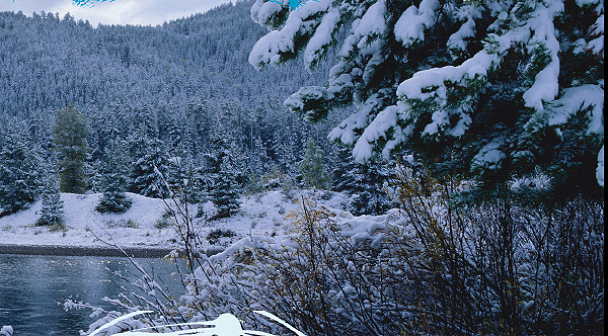
I was born on the 18th September 1901 into a family on the Western side of Poland. At the time of the WW1 my parents and family were deported to the middle of Russia near Kiev; at the end of the war we were very happy to return to Poland I married Stanislaw who was a police commander, it was very hard work as he had to trek from village to village in very changeable weather – from very hot summers to freezing cold winters. After a few years he gave up this work and bought a large piece of land where he built a house, stable, barn and cow shed and dug two wells. I was brought up on the land so I took up the gardening; growing fruit and vegetables as well as looking after the animals. I was also very proud of the house and in the Autumn of 1939 I had net curtains which made me very happy – as in those days they were a novelty. When the German Army arrived in Poland my life changed dramatically as on the 10th February 1940 all my family were sent to Siberia. I could only take a few possessions with me.My husband, father-in-law, ten year old daughter, seven year old son,my youngest daughter and baby son were packed into cattle trucks on the railway and transported to the Urals. The eldest son was at that time at university in Tarnopol and was sent to Russia with other students on the eleventh June 1940. he was working with the lumber jacks steering the logs down the river; he was a long way from us and his father fought hard to bring him back to us in the Urals. He eventually joined us and started work with his father in the forest 25km from the place where we lived. They could only visit us every two weeks – they were very exhausted and underfed so they didn’t have the strength to walk far. For dinner men were given a piece of frozen bread which they had to warm at the fire so that they could eat it. Lots of Poles had very bad teeth and eyes due to the lack of food and vitamins. I remember at times we had nothing to eat only boiled water and grass fried on a tin plate over a fire, it was very hard for young children and it was difficult to explain that we had no proper food to feed them. Summer was a little better as we could gather mushrooms and prepare a better meal. Not only Polish people suffered, but also the Russian people who lived in this area. Whilst we were in Siberia I had to bury my father-in-law who lived to seventy-eight years and my baby who was three months old; he died because I could not feed him, the only way I could try was by dissolving sugar in water, then dipping into this a piece of cloth and letting him suck. I tried the best way I could to save him, I often begged a drop of milk from a Polish lady from our village who was lucky enough to take one of her cows when she was deported, but unfortunately he died and as I said I had to bury the two of them in the forest in Siberia. After the war ended we began our journey,my husband joined General Anders army but first my son went to join the army so I was left with my three children and I was also pregnant at the time.We went to Peria in Teheran my baby girl was born. When she was a couple of months old we went to Karachi, from there to East Africa and lived in a Polish camp.We lived there for six years and at last we had good food and plenty, the children could start school. From time to time I received news from my husband. From Africa we came to England where my husband was waiting for us. We then began our life here in several refugee camps. First one was in Daglingworth nr Cirencester; then we moved to Baron’s Cross on the other side of Cirencester. Next stop - Witton Ashton near Stafford - from there to Fairford. After all that moving we finally bought a house in Blackburn. At this time my eldest son was in Scotland and he had the choice of staying here or going to Canada where he eventually went. In 1948 he married in Canada and had three children.We did not see him again until 1984. In 1950 my eldest daughter married in Gloucester and moved to America in 1952, they had six children.My daughter married in 1951 and settled in Huddersfield and had three children.My son married an English girl in Blackburn. They moved to Manchester and had one daughter. Another daughter married and moved to America.We settled in Manchester,my husband worked at engineering and after he retired he was an odd-job man at the Polish church until he was seventy-seven years old. He died in 1970 and I stayed on in the house for a few years then moved to Huddersfield. In 1985 for the first and last time my five children gathered together for the wedding of my granddaughter. In 1995 my eldest son died in Canada aged seventy-eight. That year I went to live in a Polish Home. In 2002 this gracious and brave lady died aged 100 years.  |